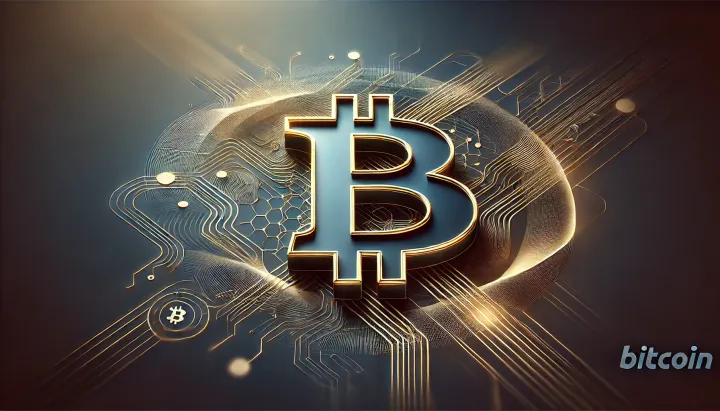Bitcoin’s Strategic Role as the World’s Reserve Money
In this November 25, 2024 episode of the Robin Seyr podcast, Walker positions Bitcoin as a leading candidate for global reserve money, emphasizing its decentralized nature and the importance of early adoption for nations and corporations.

- My 'briefing notes' summarize the content of podcast episodes; they do not reflect my own views.
- They contain (1) a summary of podcast content, (2) potential information gaps, and (3) some speculative views on wider implications.
- Pay attention to broadcast dates (I often summarize older episodes)
- Some episodes I summarize may be sponsored: don't trust, verify, if the information you are looking for is to be used for decision-making.
Summary
In this November 25, 2024 episode of the Robin Seyr podcast, Walker positions Bitcoin as a leading candidate for global reserve money, emphasizing its decentralized nature, the importance of early adoption for nations and corporations, and the growing influence of decentralized platforms like Nostr. He highlights key barriers to adoption, including technological complexity and insufficient education, while warning about the risks posed by CBDCs.
Take-Home Messages
- Nation-State Adoption: Early Bitcoin adoption offers nations significant geopolitical and economic advantages, according to Walker.
- Decentralized Media: Platforms like Nostr enhance Bitcoin’s reach by providing censorship-resistant communication.
- Education as a Catalyst: Bitcoin literacy in schools, exemplified by El Salvador, is critical for preparing future generations.
- Technological Barriers: Simplifying private key management is essential for reducing friction and accelerating adoption.
- Policy Action: Policymakers must act decisively to address risks from CBDCs and support Bitcoin’s integration into financial systems.
Overview
In this November 25, 2024 episode of the Robin Seyr podcast,Walker asserts that Bitcoin’s decentralized and censorship-resistant properties make it uniquely positioned to replace fiat currencies as the global reserve money. He emphasizes that nations delaying adoption risk losing economic competitiveness to early adopters, who stand to secure geopolitical leverage. He describes this dynamic as game theory in action, where the cost of inaction becomes increasingly unsustainable.
The role of decentralized platforms, particularly Nostr, emerges as a key theme. Walker argues that these platforms not only challenge traditional media systems but also complement Bitcoin by providing censorship-resistant communication tools. He views Nostr as critical for spreading Bitcoin awareness and fostering community engagement.
Walker highlights education as a cornerstone of Bitcoin’s adoption strategy. He points to El Salvador’s integration of Bitcoin into school curriculums as a model that other nations should consider. This approach, he explains, equips younger generations to navigate decentralized financial systems while broadening Bitcoin’s reach in the long term.
Technological challenges, especially around private key management, remain a significant barrier. Walker stresses the importance of creating user-friendly tools to simplify onboarding. He also identifies CBDCs as a direct threat to financial freedom, positioning Bitcoin as an essential countermeasure for individuals and institutions alike.
Stakeholder Perspectives
- Nation-States: Early adoption enables countries to gain strategic advantages and hedge against fiat currency risks.
- Corporations: Companies benefit financially and strategically by integrating Bitcoin into their balance sheets, as demonstrated by MicroStrategy.
- Educators: Bitcoin literacy prepares future generations to engage with decentralized financial systems, reducing economic exclusion.
- Technologists: Innovations in key management and onboarding processes are vital to overcoming adoption barriers.
- Policymakers: Clear regulation is needed to address risks from CBDCs and foster Bitcoin’s growth as a global financial tool.
Implications
Walker argues that the early adoption of Bitcoin by nations and corporations will have significant economic and political consequences. Nations that act swiftly will secure advantages, while those that hesitate risk falling behind in a shifting global financial landscape. The competitive pressures of game theory, he explains, will drive adoption at an accelerating pace.
He also underscores the urgency of addressing barriers to adoption. Simplifying technological tools and broadening education initiatives are critical steps to ensure more inclusive access to Bitcoin. Decentralized platforms like Nostr will further amplify Bitcoin’s reach, empowering individuals and institutions to embrace decentralized systems while countering the growing risks posed by CBDCs.
Future Outlook
Walker predicts a rapid acceleration of Bitcoin adoption as nations, corporations, and individuals recognize its strategic importance. He anticipates that smaller, agile nations will lead the way, with early adoption providing disproportionate benefits. The United States, he suggests, could solidify its position as a global leader by integrating Bitcoin into its reserves.
Technological and educational advancements will play a decisive role in shaping the adoption curve. Simplified user interfaces for private key management will lower barriers, while initiatives like El Salvador’s school programs will prepare new generations for the transition to decentralized systems. Policymakers must act now to avoid being left behind in this transformative shift.
Information Gaps
- What factors most influence a nation’s decision to adopt Bitcoin as a reserve asset? Understanding these factors is critical for identifying the economic and political considerations driving adoption. Nations can use this insight to guide their strategic decisions.
- What regulatory frameworks most effectively balance innovation and consumer protection in Bitcoin adoption? Clear regulatory policies will foster innovation while addressing risks, creating a stable environment for Bitcoin’s growth.
- What advancements are needed to make private key management more user-friendly? Simplifying key management is essential for onboarding non-technical users and accelerating mass adoption.
- How does decentralized media like Nostr accelerate Bitcoin awareness and adoption? Exploring the impact of censorship-resistant platforms on Bitcoin’s visibility will clarify their role in fostering adoption.
- What are the most effective approaches for integrating Bitcoin education into public school curriculums? Identifying best practices for Bitcoin literacy programs will ensure future generations are prepared for decentralized financial systems.
Broader Implications for Bitcoin
Nation-State Adoption Race
The race for nation-state Bitcoin adoption could redefine global economic hierarchies. Early adopters will secure economic leverage and influence, while laggards risk being outpaced as Bitcoin’s value grows. Smaller, agile nations—such as El Salvador—already demonstrate how early adoption can create outsized advantages, potentially pressuring larger economies like the United States to act.
CBDC Threats and Bitcoin’s Role
The rise of CBDCs presents a significant challenge to individual freedoms by centralizing financial control. Bitcoin offers a counterbalance, providing individuals and institutions with a tool to resist financial authoritarianism. Widespread Bitcoin adoption will depend on public awareness of CBDC risks and the ability to articulate Bitcoin’s advantages as a safeguard.
Technological Accessibility
Simplifying Bitcoin’s technological barriers is critical to unlocking its full potential. Advancements in private key management and user-friendly interfaces will determine the pace of adoption, especially among non-technical users. As these tools improve, they will democratize access to Bitcoin, fostering greater global participation in the decentralized economy.



Comments ()